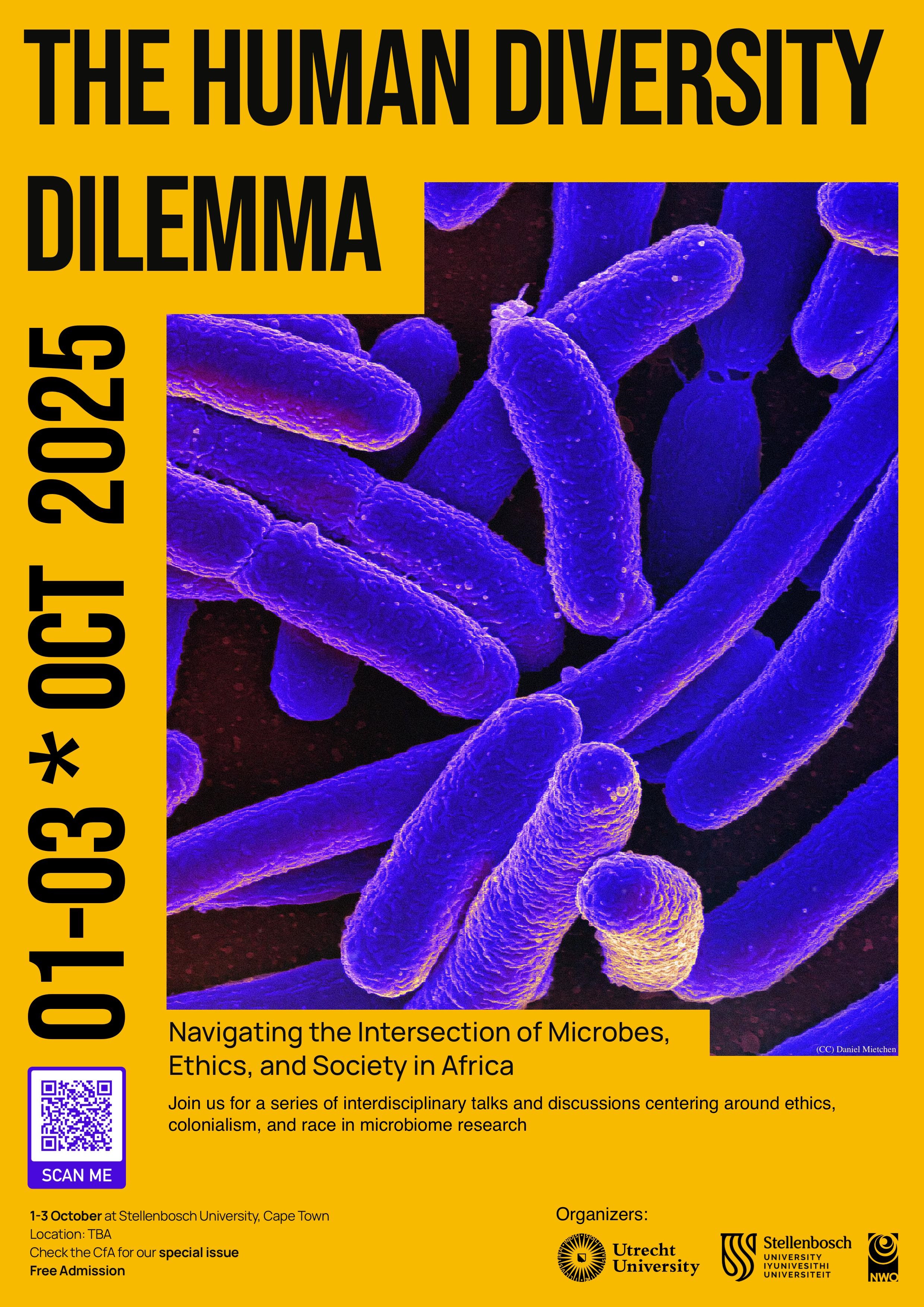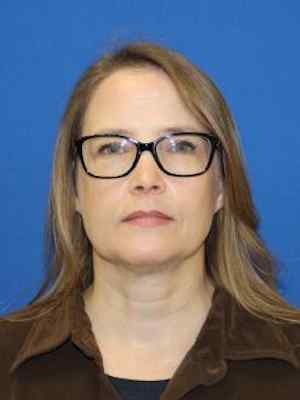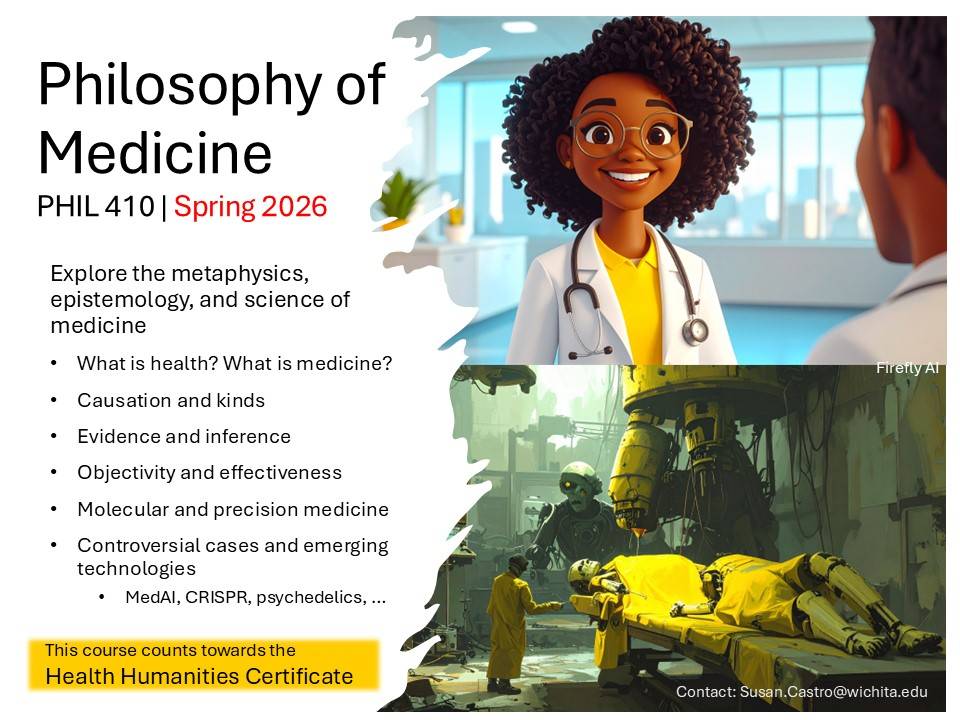Overview
B.A. Mathematics--Applied Science, Specialization in Computing, UCLA
Ph.D. Philosophy, UCLA
APPA Certified Philosophical Counselor
Dr. Castro's research includes two tracks.
One track follows her graduate work, which is centered in Kant scholarship and informed by current science, with a broadly interdisciplinary aim. She is currently working on a book about Kant's metaethics, specifically how to establish a metaphysics of morals as a non-empirical science. More broadly in this track, Dr. Castro is interested in the family of phenomena involved in acting or cognizing as if, in a wide range of contexts that include an imagination-centered Kantian theory of autism, algorithmic agency and social justice, cognitive shifts in philosophy of humor, Immanuel Kant’s peculiar moral imperative to "act as if your maxim were to become by your will a universal law of nature" (aka Kant's formula of nature), and Japanese philosophy of art (mastery and performance in renga and Noh).
The second track in Biomedical Humanities derives from taking a philosophical perspective towards her work on the Human Genome Project at UCLA and support work for the Jefferson Institute of Molecular Medicine. This track includes current issues in philosophy of medicine and cyberethics. She serves as the founding Director of The Academic Center for Biomedical and Health Humanities (HealthHum), which will support collaboration from campus to community in conjunction with the downtown Wichita Biomedical Campus.
At WSU Professor Castro has taught History of Ethics, Metaethics, Ethical Theory, Philosophy of Law, Philosophy of Medicine, Philosophy of Feminism, Philosophy of the Arts, Business Ethics, Philosophy of Humor, Ethics and Computers, Biomedical Engineering Ethics, and Ethics of Big Data among others.
Information
B.A. Mathematics--Applied Science, Specialization in Computing, UCLA
Ph.D. Philosophy, UCLA
APPA Certified Philosophical Counselor
I began my career in bioinformatics, before it was called 'bioinformatics', as a programmer and SysAdmin for the Human Genome Project core facility at UCLA. Recognizing that my undergraduate degree didn't adequately prepare me for the philosophical problems of the work, I turned to philosophy for help understanding things like the nature of homology and function, and the ethics of gene patenting. Somehow I ended up studying Immanuel Kant, who rather predates the discovery of the double-helix. Between graduate school and WSU I worked for three years at the Jefferson Institute of Molecular Medicine, Division of Connective Tissue diseases (grants and manuscripts; no benchwork or patient care).
Today I can't claim to be an expert in bioinformatics or cell signaling or microbiomes, but I'm certainly interested. I like systems of all kinds. Mostly I'm interested in cognitive activities like ethical agency, scientific reasoning, and artistic performance.
Topics of continuing interest
- Biomedical and health humanities
- Moral philosophy, ethics and social justice
- Theory to applications in AI Ethics, biotech ethics
- Philosophy of Technology
- Philosophy of biomedical engineering
- Philosophy of Medicine
- Immanuel Kant's philosophy
- Cognizing as if
- Philosophy of humor
- Japanese philosophy
- African ethics

Spring 2026:
- PHIL 354 Ethics and Computers
- PHIL 410 Philosophy of Medicine (counts towards UG Certificate in Health Humanities)
Fall 2025:
- PHIL 354 Ethics and Computers
- PHIL 361 Metaethics
- PHIL 386 Biomedical Engineering Ethics
Other courses and topics taught
- Ethics: Metaethics, ethical theory
- Applied ethics: Cyberethics, including big data and AI; biomedical engineering ethics
- History of Philosophy: Modern philosophy (18th Century), Kant
- Philosophy of the Disciplines: Philosophy of medicine, biomedical engineering, artificial intelligence, law
- Perspectives: Feminist philosophies, philosophy of the arts, philosophy of humor
- First Year Seminars: On Humor, Law
Recent Talks
"AI Ethics for OI: Communicating Moral Status through Mindreading Technologies for Organoid Intelligence"
SVH Castro
Minds and Machines: Artificial Intelligence, Algorithms, Ethics, and Order in Global Society
20th Annual International Conference on Interdisciplinary Social Sciences
University of Malaga, Spain
July 4, 2025
Abstract:
Organoid Intelligence (OI) is the development of lab-grown mini-brains from induced pluripotent human cells for computational purposes. OI promises to offer self-organizational, growth, and healing capabilities with negligible energy costs and heat production compared to AI in silica. Given the environmentally catastrophic projections for AI in silica, organoid computing and other synthetic biological intelligence (SBI) alternatives might offer a more ethical path. Obviously, however, sentience, consciousness, and a subjective point of view may arise from the organization and growth of brain cells. Calls for emphasizing the critical importance of ethics in OI are thus common and sincere but often empty.
Until recently there was little hope of determining which levels and kinds of complexity in OI could give rise to ethical markers of moral status. Now mindreading technologies like mind-to-text brain implants for stroke patients have advanced to the point of detecting specific language intention such as "I'm thirsty" from real-time electroencephalographic data from living human brains. While we are still quite far from being able to use AI to detect the precursors of moral status so as to limit OI research subjects to remain within any given ethical boundary space, the Precautionary Principle and Non-maleficence strongly imply that subjects protection procedures like the US institutional review board (IRB) approval process are needed now.
The contribution to OI ethics that I want to try to make is twofold. First, using what we’re learning from mindreading R&D can and should be applied, synchronously, to the moral marker problem in OI. Second, Indigenous metaethics, specifically a kinship approach to research subjects, may offer a way to unify and make coherent the regulatory principles and procedures that we need for the 21st Century.
"Medical Integrity, Algorithmic Intimacy, and Organoid AI"
SVH Castro
Emerging Technologies: Promises and Perils
Newman University, Wichita, USA
April 12, 2025
Framing questions:
- What is medical integrity in the emerging age of AI, given prompt-hacking, hallucination, and unexplainable unreplicable results?
- How can we ethically manage the new forms of unwanted algorithmic medical intimacies in precision, personalized medicine?
- As lab-grown human cell mini-brains become complex enough to model Alzheimer's and generate compute power (organoid intelligence), what metrics and protocols can we apply to protect these living research subjects?
The third question is merely raised in this talk. I discuss the question and its implications in further detail in the AI for OI talk presented at the University of Malaga in July 2025.
"Algorithmic Humor"
SVH Castro
Philosophy of Humor Session
American Philosophical Association, Central Division Meeting
New Orleans, LA, USA
Feburary 22, 2025
Abstract: For decades the internet has been littered with found humor generated by naughty autocorrect glitches and spontaneous incongruities. This year generative AI based on large language models has decidedly leveled up. Today ChatGPT can write a passable sitcom scene in a style and theme of the prompter’s choice, and the techno-public is just beginning to explore what else chatbots and similar technology can generate. This quasi-singularity in AI development reframes questions for philosophy of humor, philosophy of technology, epistemology, and personhood. Drawing from Susan Sterrett’s work on the Turing Test, aspects of the explainable AI movement, and contemporary work in the philosophy of humor, I outline a general approach to theorizing algorithmic humor.
"Healthy Humor"
SVH Castro
Philosophy of Humor Session
American Philosophical Association, Pacific Division Meeting
Portland, OR, USA
March 20, 2024
Abstract: Christopher Boorse is often credited with elevating philosophical questions regarding our conceptions of health and disease to found philosophy of medicine as a developing specialty in academic philosophy. John Morreal is similarly credited with founding philosophy of humor. This talk brings together considerations from both these traditions to establish a framework for understanding healthy humorand its potential contrast concepts, ranging from sick humor to considering what might qualify as a humor disability .
Castro, Susan V. H. "Medical and Algorithmic Intimacy: Philosophical Considerations", Artful Medicine Symposium, October 2023.
Castro, Susan V. H. "Ethics of Big Data", WSU Academic Resources Conference, January 2023.
Castro, Susan V. H. Panelist for "Academic Integrity in the Age of AI", WSU Academic Resources Conference, January 2023.
Castro, Susan V. H. “Ethics of Professional Judgment in Dentistry”, Wichita District Dental Society (CME credit in ethics).
Castro, Susan V. H. “Sublime Humor”, APA Central, Philosophy of Humor Session, February 2022.
Castro, Susan V. H. “On the ‘logics’ of renga” Kansas Philosophical Society, February 2020.
Castro, Susan V. H. “The Category-Theoretic Space of Kant’s Imagination”, History of Philosophy of Science (HOPOS), Minneapolis, June 2016.
Castro, Susan V. H. “The Ambitious Idea of Kant’s Corollary”, International Kant Congress, Vienna, September 2015.
Castro, Susan V. H. “Acting as a Double Agent without Becoming Two Faced”, Association of Fundraising Professionals Annual Ethics Seminar, October 17, 2014.
Some publications
Castro, Susan V. H. (2022) "Prosecuting the Case Against Clewis" Philosophy of Humor Yearbook 4:283-6.
This is a pompous, tongue-in-cheek, Kantian-insider roast. It is not at all the proper book review I was asked to write.
Tags: Philosophy of Humor, Immanuel Kant, Aesthetics, Philosophy of Art
Castro, Susan V. H. (2022) “ Paradigms of Smart Farming: Chemical, Ecological, Algorithmic” MDPI Proceedings, 2021 Summit of the International Society for the Study of Information (IS4SI), Philosophy and Computing Session.
Tags: Artificial Intelligence, Automation, Agriculture, Metaphysics, Ethics
Castro, Susan V. H. (2020) "Engendering Algorithmic Oppression" Blog of the American Philosophical Association.
Tags: Artificial Intelligence, Diversity and Inclusion, Women in Philosophy.
Castro, Susan V. H. (2019) "A Kantian Theory of the Sensory Processing Subtype of ASD [Autism]"Journal of Cognition and Neuroethics, 6(1):1-15.
Tags: Autism spectrum, Autism Spectrum Disorder, Immanuel Kant, Sensory Disorders
Castro, SVH (2018) “Zeami’s Reply to Plato: On the Art of Sarugaku”Japan Studies Association Journal 15(1):1-22.
Tags: Japanese Philosophy, Sarugaku, Noh Theater, Zeami Motokiyo, Plato, Philosophy of Art, Metaphysics
Book projects
- Introduction to Health Humanities multidisciplinary anthology (organized through HealthHum)
- Philosophy of Medicine
- Futures of Health
- Philosophy of Bioengineering monograph (supported by ARCS grant 2025 and FARE Mutual Mentoring Team Grant 2025)
- Establishing Moral Metaphysics as a Science monograph (casualty of the pandemic sabbatical, to be resurrected in due course)
Papers in progress
- Ubuntu Revisited: Healing for Microbiome-Inclusive Personhood (supported by ARCS grant 2025)
-
The BIV lives: Mini-Brains, miBrains, and Organoid Intelligence as Novel Research Subjects (supported by ARCS grant 2025)
- Philosophy of Humor: Healthy Humor, Moments of Humor (Kantian)
- Philosophy of STEM: Algorithmic Intimacies, The Category-Theoretic Space of Kant’s Imagination
- Sister Stories; Philosphy in situ (supported by MuRPA grant 2024)
- Comparative Philosophy: Kant’s reply to Zeami: Sarugaku, sensus communis, and perpetual peace (with Dr. Robert Feleppa)
FARE Mutual Mentoring Team Grant, AY 2025-26
Interdisciplinary Writing and Publishing Network for Books
Team: Jason Allen, Assistant Professor of Creative Writing; Susan V.H. Castro, Associate Professor of Philosophy; Alyssa Lynne-Joseph (PI), Assistant Professor of Sociology; Trevor R. Nelson, Assistant Professor of Musicology
Award for Research/Creative Projects in Summer (ARCS), Summer 2025
Philosophy of Biomedical Engineering
Susan V.H. Castro (PI), student assistant [redacted]
Multidisciplinary Research Project Awards (MuRPA), Summer 2024
Sowing and Growing Through Mindfulness with Nature: Implications for an Indigenous-Informed Creative Arts Praxis
Lori Santos (PI: Art Education), Susan G. Sterrett (Co-PI: Philosophy), Susan Castro (Co-PI: Philosophy)
President's Distinguished Service Award 2025
Director, The Academic Center for Biomedical and Health Humanities ( HealthHum)
Member, Board of Directors, Kansas Education and Research Network (KERN), Kansas Health Science University (KHSU).
AY 2025-26
- Member, AI Strategy Council
- Organizer, Responsible AI@ICT
- Member, President’s Innovation Advisory Council (PIAC)
- Senator at-large, Faculty Senate
- Member, Faculty Senate Rules Committee
- Faculty Advisor, Humanities Applied Learning program
- Member, LAS Curriculum Committee
- Chair, Chair Policy Review Task Force
- Philosophy Department website manager
Faculty Senate
- Faculty Senator At Large AY 2025-2027
- Faculty Senate President-elect AY 2021-2022
- Faculty Senate President AY 2022-2023
- Faculty Senate past President 2023-2024
Department of Philosophy
- Department chair Summer 2021- August 2024



